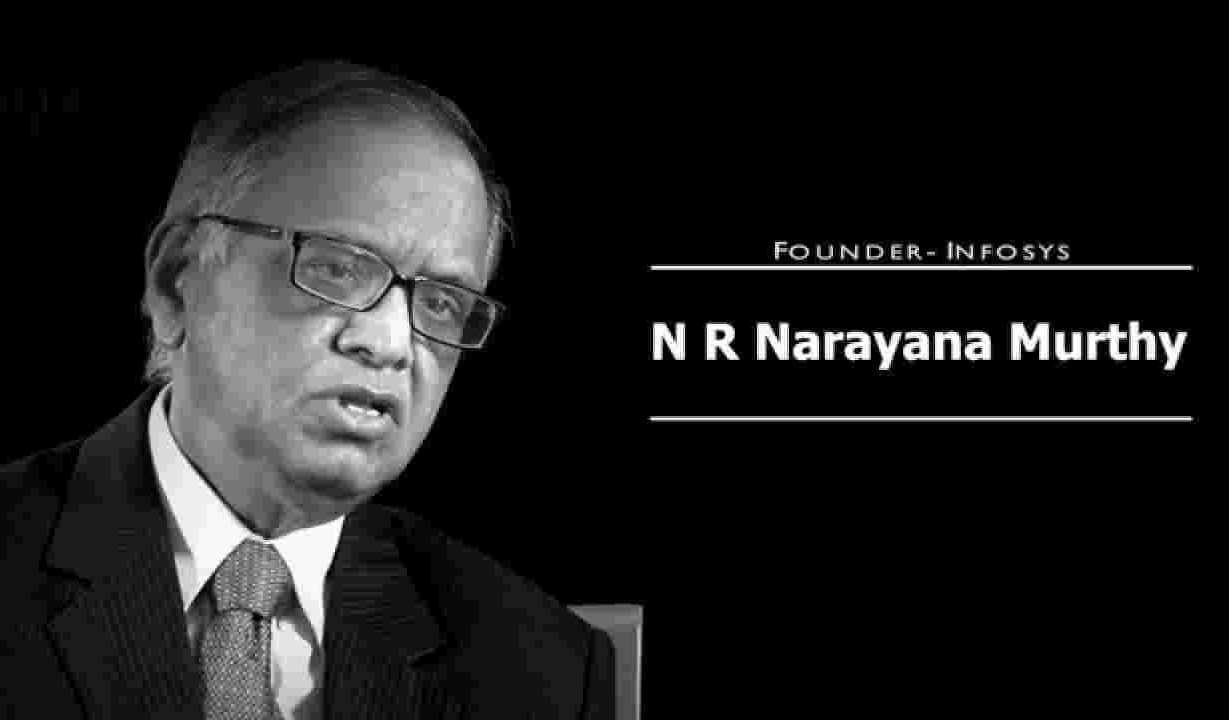Home News Technical Infosys Co-founder asserts, ‘Devoting over 40 years to working 70+ hours per week was not in vain’
09 December, 2023

In a rare and candid reflection on a lifetime devoted to entrepreneurship and innovation, Infosys co-founder Narayana Murthy has shared insights into his remarkable journey, emphasizing the significance of hard work and dedication. Murthy, a pioneering figure in the Indian IT industry, recently revealed that he worked more than 70 hours a week for over four decades.
Contrary to any assumption that such a relentless dedication might be seen as a sacrifice, Murthy insists that it was not a waste. This statement has sparked discussions on work ethics, success, and the evolving landscape of the global technology sector.
The Early Years
Narayana Murthy, born on August 20, 1946, in Karnataka, India, laid the foundation for Infosys in 1981, along with six other co-founders. The journey began in a small apartment in Pune, with a modest investment of $250. The initial years were challenging, marked by financial constraints and a highly competitive industry. Murthy and his team were driven by a vision to transform India into a global player in the software services arena.
The Grind
As the IT sector burgeoned in the 1980s and 1990s, Infosys grew exponentially. Murthy, known for his hands-on approach and strong work ethic, led by example. His statement regarding working over 70 hours a week for more than 40 years sheds light on the intense commitment required to build and sustain a globally renowned company.
The landscape of the IT industry during those years was vastly different from today. Murthy and his team faced numerous challenges, from the lack of adequate infrastructure to skepticism about India's capabilities in the tech domain. In an era before the internet became ubiquitous, the journey demanded perseverance, innovation, and a relentless pursuit of excellence.
Murthy's dedication to quality and transparency became the guiding principles of Infosys. The company, under his leadership, became synonymous with integrity and professionalism, establishing itself as a global player in the IT consulting and services space.
The Significance of the Statement
Narayana Murthy's recent statement on his work hours has ignited a conversation on the nature of success and the evolving perceptions of work-life balance. In an age where discussions on the negative impact of long working hours are gaining momentum, Murthy's perspective offers a unique counterpoint.
He contends that the hours invested in building and nurturing Infosys were not a sacrifice but a conscious choice driven by passion and commitment. Murthy's assertion challenges the conventional narrative that associates success solely with personal sacrifices, prompting a reevaluation of the relationship between dedication, success, and well-being.
Work Ethic in the Tech Industry
The technology sector, known for its fast-paced and dynamic nature, often demands long hours and continuous innovation. Murthy's reflections come at a time when discussions on the work culture in the tech industry are gaining prominence globally. The push for work-life balance, mental health awareness, and flexible work arrangements has become more vocal, with employees seeking a harmonious integration of professional and personal life.
However, Murthy's statement doesn't romanticize overworking or dismiss the importance of work-life balance. Instead, it highlights the individual nature of success and the diverse approaches individuals take to achieve their goals. It also underscores the role of passion and purpose in sustaining one's commitment over the long term.
Impact on the Workforce
Narayana Murthy's statement is likely to resonate differently with various segments of the workforce. Young professionals entering the job market may find inspiration in his unwavering dedication, viewing it as a testament to the rewards of hard work and perseverance. On the other hand, those advocating for a more balanced approach to work may see it as a reflection of a bygone era, urging the industry to evolve toward healthier work practices.
The statement could also influence corporate leaders and entrepreneurs, prompting them to reflect on their own work philosophies and the impact on their teams. It raises questions about leadership styles, employee satisfaction, and the sustainability of a high-intensity work culture in the long run.
Balancing Act: Work, Success, and Well-being
Narayana Murthy's life and career offer valuable insights into the delicate balance between professional success and personal well-being. While his dedication to Infosys is commendable, it is essential to recognize that the circumstances and expectations of the modern workforce have evolved.
The current discourse on work-life balance emphasizes the importance of holistic well-being, acknowledging that success is not solely measured by professional achievements. The evolving attitudes toward remote work, flexible schedules, and mental health support reflect a broader societal shift towards recognizing the multifaceted nature of success.
Murthy's journey also raises questions about the role of passion and fulfillment in one's professional life. Can a high level of commitment and long working hours be sustainable without a deep sense of purpose and satisfaction in the work being pursued? As the workforce seeks more meaningful and purpose-driven careers, leaders may need to adapt their approaches to foster environments that align with these changing values.
Lessons for the Next Generation
Narayana Murthy's life story serves as a source of inspiration for aspiring entrepreneurs and leaders. His resilience, vision, and commitment to ethical business practices have left an indelible mark on the Indian IT industry. However, it is crucial to contextualize his work ethic within the trajectory of his career and the historical context of the IT sector during his formative years.
The next generation of leaders can draw lessons from Murthy's dedication while also recognizing the importance of adapting to evolving workplace dynamics. The integration of technology, changing attitudes towards work, and a greater emphasis on diversity and inclusion are shaping a new era in business.
Conclusion
Narayana Murthy's recent revelation about working 70+ hours a week for over four decades has sparked conversations on success, dedication, and work-life balance. His journey, from the early days of Infosys to its current status as a global IT giant, provides a unique perspective on the challenges and rewards of entrepreneurship.
As the workforce navigates the complexities of a rapidly evolving professional landscape, Murthy's statement invites reflection on individual work philosophies, leadership styles, and the evolving expectations of the modern workforce. While his dedication is commendable, it is essential to recognize the changing dynamics of the workplace and the diverse paths individuals take to achieve success. Ultimately, the lessons from Narayana Murthy's journey serve as a beacon for those seeking to make a lasting impact in their chosen fields while navigating the delicate balance between professional success and personal well-being.
According to the founder of Infosys, if you appreciate hard work, consider joining Shriji Solutions by applying for a career opportunity today.

